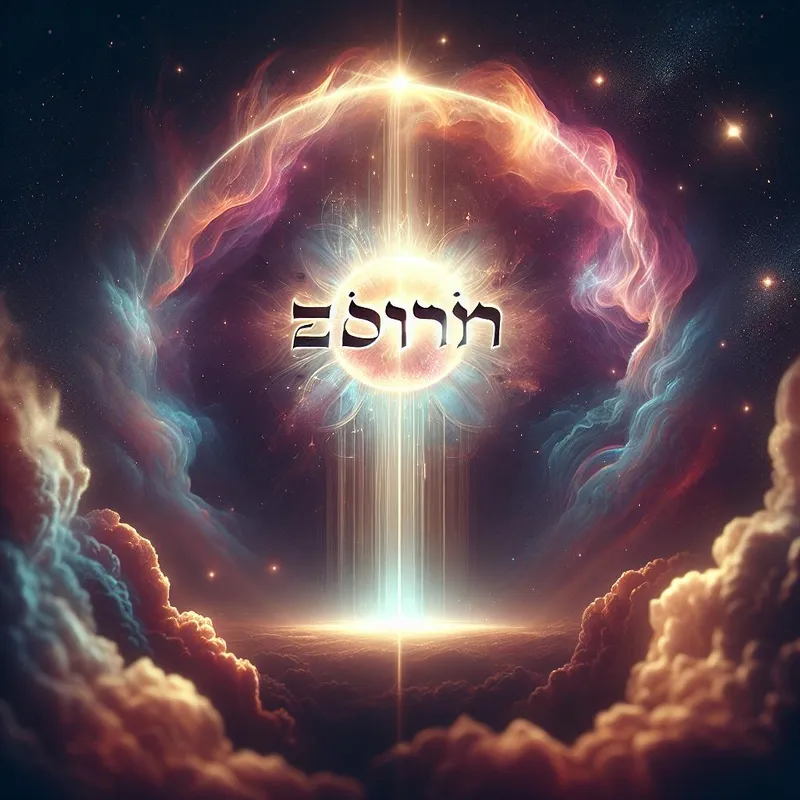
'Unveiling the Profound Meaning of Elohim: A Christian Perspective'
Posted on 16 July 2024
The Meaning of Elohim
Elohim is a Hebrew word that is commonly used to refer to God in the Old Testament. It appears over 2,500 times in the Tanakh, starting from the very first verse: "In the beginning [Elohim] created the heavens and the earth" (Genesis 1:1). The name Elohim signifies strength and power, emphasizing that God is the infinite, all-powerful creator, sustainer, and supreme judge of the world.
The Power of Elohim
The name Elohim reflects the immense power and effect that God possesses. It signifies His ability to bring about great works and accomplish His purposes. For example, Psalm 7:9 states, "Bring to an end the violence of the wicked and make the righteous secure—you, the righteous [Elohim] who probes minds and hearts." This verse highlights God's capacity to examine and understand the thoughts and intentions of individuals.
Variations of Elohim
Sometimes, the word Elohim is shortened to El and used as part of longer names. This practice allows for different aspects of God's character or attributes to be emphasized. For instance, El Shaddai means "God Almighty" (Genesis 49:24), El Elyon means "God Most High" (Deuteronomy 26:19), and El Roi means "God Who Sees" (Genesis 16:13). Personal names can also incorporate the name of God, such as Daniel ("El Is My Judge"), Nathanael ("Gift of El"), Samuel ("Heard by El"), Elijah ("El Is Yahweh"), and Ariel ("Lioness of El"). Furthermore, place names can contain the shortened form of Elohim, such as Bethel ("House of El"), Jezreel ("El Will Sow"), and Israel ("Prince of El").
Elohim in the New Testament
In the New Testament, we see a form of Elohim being used by Jesus on the cross. When Jesus cried out, "Eloi, Eloi, lema sabachthani?" (Mark 15:34), He was addressing the Father using a form of Elohim, specifically Eloi. Mark translates Jesus' statement for us: "My God, my God, why have you forsaken me?" This usage of Elohim reflects Jesus' recognition of His relationship with God the Father.
Other Uses of Elohim
While Elohim is primarily used to refer to the one true God, it can also have other meanings in certain contexts. In some instances, elohim can refer to human rulers or judges who are meant to act as God's representatives on earth, exercising their authority wisely and ensuring justice. Psalm 82 warns that these human elohim will one day answer to the Supreme Elohim. Additionally, elohim can be used to denote false gods worshipped by people who have turned away from the one true God.
The Plural Form of Elohim
Interestingly, Elohim is grammatically plural rather than singular. The -im suffix in Hebrew indicates the plural form. However, this does not imply polytheism—the belief in multiple gods—because the Torah clearly states that God is one (Deuteronomy 6:4). Instead, the plural form of Elohim is best understood as a plural of majesty. It is a stylistic way of emphasizing greatness, power, and prestige. The Old Testament hints at the Trinity—God's triune nature—in order to prepare people for the coming Messiah who would be much more than a human prophet.
The Triune Nature of God
While the plural form of Elohim does not directly indicate the Trinity, it allows for the further revelation of God's triune nature. The Old Testament provides glimpses of this truth, and when Jesus appeared, He more fully revealed the mysteries hinted at in the Old Testament. At Jesus' baptism, all three Persons of Elohim were present: Father, Son, and Holy Spirit (Matthew 3:16–17). This event demonstrates that God is not only one but also exists in three distinct persons.
Why This Matters
Understanding the meaning of Elohim helps us grasp the character and nature of God. It reveals His power, authority, and ability to accomplish His plans. Recognizing that Elohim is a plural form that points to the triune nature of God prepares us to comprehend the full revelation of God in Jesus Christ. It deepens our understanding of the relationship between Father, Son, and Holy Spirit and encourages us to worship and serve the one true God.
Think About It
- How does recognizing God as Elohim impact your perception of His power and authority?
- In what ways does understanding the plural form of Elohim enhance your understanding of the Trinity?
- How does Jesus' use of Elohim on the cross reflect His relationship with God the Father?
- Reflect on the significance of God's triune nature in your own faith journey.
